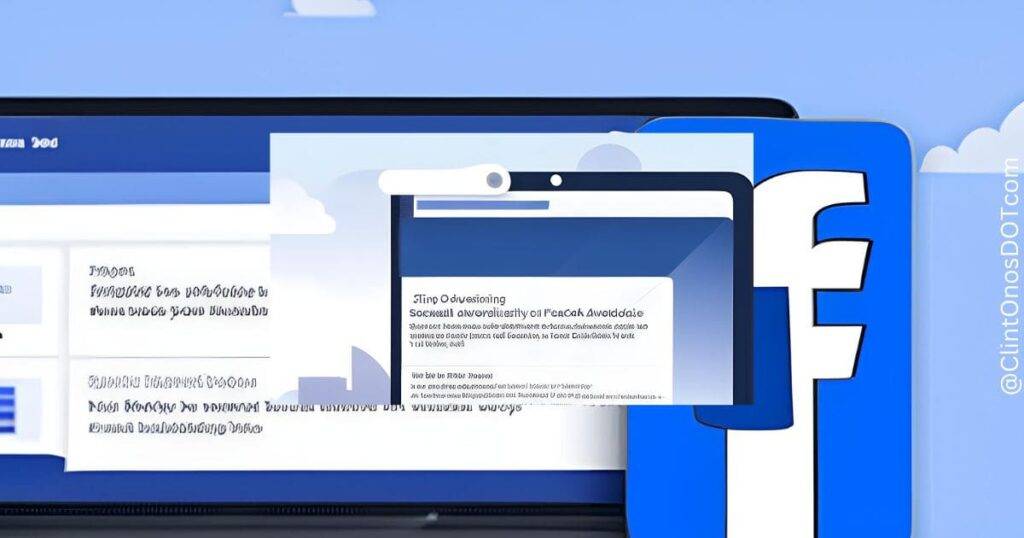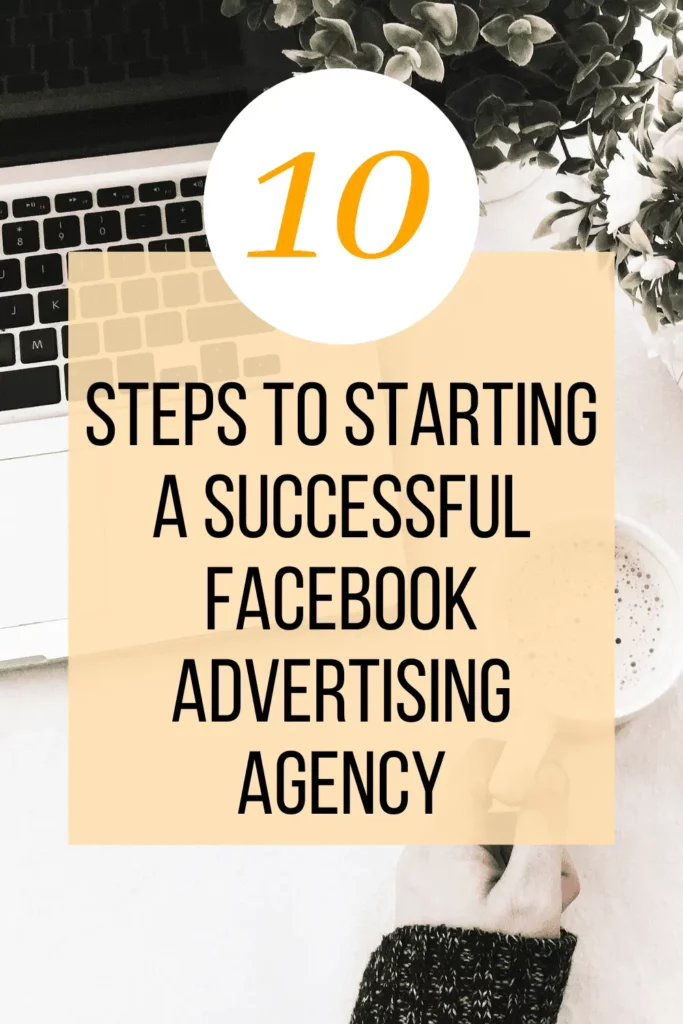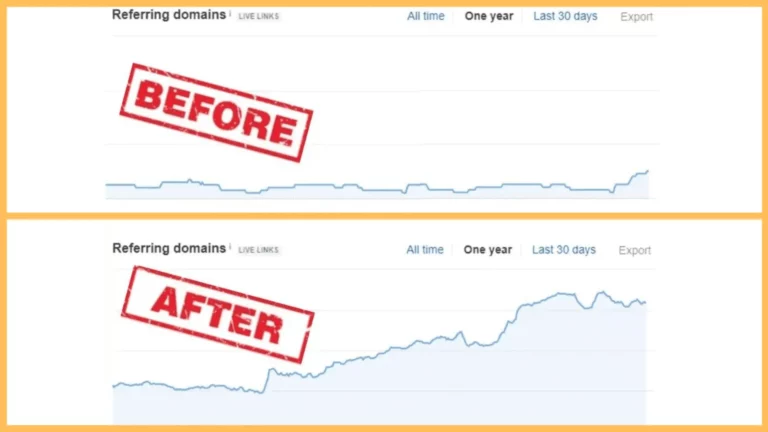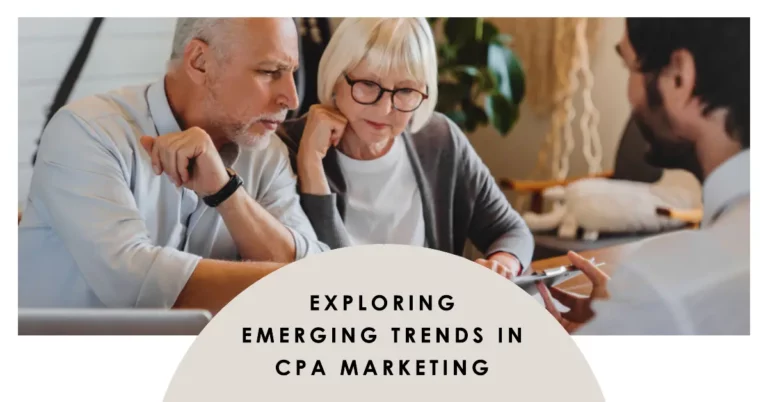It’s no secret that Facebook advertising is in high demand right now. The demand is so high, in fact, that the competition for likes and clicks on ads has grown increasingly fierce.
That’s why it’s more important than ever to operate a top-quality agency rather than just another Facebook advertising company.
In this blog post, we’ll walk you through the 10 essential steps that you need to take if you want to start your very own Facebook advertising agency.
These steps will help make sure that your new agency has a solid foundation for its future success.
Before we go over the ten steps, let’s explain some core concepts of marketing agencies for the benefit of beginners.
If you already own an agency, please use the navigation to skip to the section of interest.

What is Facebook Advertising Agency
Facebook advertising agencies are businesses that help other businesses advertise their products and services on Facebook.
They can offer a variety of services to businesses, such as making ad campaigns, managing ad spending, and analyzing data about how well ads work.
Facebook advertising agencies can help businesses reach a wide range of potential customers on Facebook and can help to increase brand awareness and traffic to websites.
Facebook advertising is one of the most popular ways to reach potential customers on social media platforms.
There are a number of different advertising agencies that can help you design and execute effective Facebook advertising campaigns.
Some of the benefits of using a Facebook advertising agency include:
Some of the benefits of Facebook advertising agencies include, but are not limited to:
- Increased reach: Facebook advertising allows you to target a specific audience with your ads, which can result in a higher number of visitors clicking through to your website or landing page.
- Cost-effective: Facebook advertising is one of the most affordable ways to reach a large audience.
- Flexible campaign design: Facebook advertising agencies can help you design an effective campaign that is tailored to your specific needs and goals.
- Customizable reporting: Every Facebook advertising campaign will generate different reports that allow you to track your progress and adjust as needed.
With that said, business owners interested in starting or expanding their Facebook advertising campaign can contact a Facebook advertising agency to get started.

Steps to setting up Facebook Advertising Agency for small business
When starting your own Facebook advertising agency, it’s important to set up the business correctly from the beginning. Here are four steps to help get you started:
1. Decide what you want your Facebook Ads agency to do
There are many different services that Facebook advertising agencies can provide, such as creating and managing ads, creating and managing landing pages, and conducting surveys.
It’s important to decide what you want your agency to do before you begin setting up your business.
2. Choose a name and logo
Once you know what you want your agency to do, it’s time to choose a name and logo. Make sure the name you choose is catchy and relates to your agency’s services.
It’s also important to choose a logo that represents your agency well.
3. Set up a website.
Now that you have a name and logo, it’s time to set up your website.
You can use a web hosting service to create your own website, or you can use a service like WordPress to create a blog.
Make sure your website is professional and easy to navigate.
4. Market your business.
Once you have your website set up, it’s time to start marketing your business.
You can advertise on Facebook, Twitter, Instagram, and other social media platforms.
You can also reach out to potential clients by emailing them or attending networking events.
By the way, if you have no trusted domain name or hosting partner, I recommend using NameCheap for getting a domain name and 10Web for blazing-fast WordPress hosting.
Now that we have brought beginners up to speed, let’s return home… Ah!
So, what are the steps to being successful with a Facebook advertising agency?
Step 1 – Define Your Audience
The first step to starting a successful Facebook advertising agency is to understand your audience.
Understanding your target audience will enable you to create more targeted and effective ads that resonate with your audience, ultimately leading to higher ad engagement and click-through rates.
Next, it is important to know the key differences between your target audience and your competitors’ target audiences.
If you’re a new agency starting out with Facebook ads, you’ll want to know who your competitors’ clients are and how they differ from your target audience.
How to find the right audience
A great way to find an audience for a Facebook advertising agency is to use the Audience Insights tool.
This tool provides detailed demographic, psychographic, and behavioral data on Facebook users who are likely to be interested in your business.
Additionally, you can use this tool to gain insight into the interests and habits of potential customers.
You can also use the Audience Insights tool to compare different audiences and determine which one best fits your business goals.
Finally, you can use the Audience Insights tool to create custom audiences for targeted campaigns.
Identify key differences between your target audience and your competitors’ target audiences.
It is important to know the key differences between your target audience and your competitors’ target audiences in order to create effective campaigns.
For example, you may find that your target audience is more likely to be interested in a particular product or service than the competition’s target audience.
Additionally, you may find that the demographics of your target audience differ from those of your competitors.
Knowing these differences can help you tailor campaigns specifically for each group. You can also use this information to develop strategies that will give you an edge over the competition.

Step 2 – Develop a Strong Marketing Strategy
The next step to starting a successful Facebook advertising agency is to develop a strong marketing strategy.
While you can get by with less than half of your marketing strategy, you’ll still see little to no success with Facebook advertising if you don’t develop a marketing strategy at all.
Your marketing strategy is the roadmap that will connect the dots between your strategy, your target audience, and your campaigns.
With your marketing strategy in place, you’ll be able to determine the best ways to reach your target audience and draw them in.
You’ll also be able to measure the success of each campaign and determine which campaigns to continue and which to stop.
How to develop a Marketing Strategy That Works
If you desire to make your agency works, ensure you pay close attention to the points highlighted below.
Set Your Goals
Before you begin developing your Facebook marketing strategy, it’s important to set measurable goals and objectives.
These should be specific, realistic, and achievable. For example, you may want to increase brand awareness, generate leads, or drive traffic to your website.
Research Your Audience
Knowing who your target audience is will help you create content that resonates with them.
Consider conducting market research or using analytics tools to understand more about your target demographic and their preferences.
Create Compelling Content
Content is the cornerstone of any successful Facebook marketing campaign.
Create content that resonates with your audience and encourages them to engage and share it with their networks.
Focus on creating high-quality visuals and videos as well as informative blog posts that provide value for viewers.
If creating good content or copy that converts quickly is an issue for you. I recommend using Writesonic AI copywriting with ease.
It’s effective and will save you lots of time. You can try it for free.
Leverage Ads
Paid advertising on Facebook can help you reach a wider audience faster than organic posts alone can do, so consider leveraging ads in order to maximize the success of your campaign.
Utilize targeting features to ensure your ads are reaching the right people at the right time with the right message.
Track Results
It’s important to keep an eye on how well your campaigns are doing so you can make sure they’re getting the results you want and find ways to improve them over time.
Use analytics tools like Google Analytics or Facebook Insights to track key metrics like the number of people who visit your website or how engaged they are, so you can make changes as needed.
Step 3 – Set Up an Effective Ads Strategy
Once you have your marketing strategy in place, you’ll need to set up an effective ads strategy.
Your ads strategy is the foundation upon which your entire business will rest. It’s the strategy that will determine the type of ads you run, their frequency, and when you’ll run them.
It’s also the strategy that will determine your ad spending. If your ads strategy is off, you won’t see success.
For example, if you’ve set up a strategy that doesn’t connect your marketing, ads, and campaign, you won’t see success with any of your campaigns.
When setting up your ads strategy, you’ll want to consider one key thing: how will you collect data on how the ads are performing?
You’ll want to be able to measure the results of each ad, so you can make adjustments and improvements.
How to set up an Effective Ads Strategy
The effectiveness of your ad strategy cannot be overemphasized, as it is the core of any successful agency.
You’ll notice the repetition of some points already highlighted. It’s intentional to further drive home the point.
Identify Your Target Audience
The first step in setting up an effective ads strategy is to identify your target audience.
This includes researching their demographics, interests, and buying habits.
Knowing who you are targeting will help you create more targeted campaigns that will be more successful in converting leads into customers.
Establish Your Budget
Once you know who your target audience is, you should then establish a budget for your ad campaigns.
This will help ensure that you don’t overspend on ads and still have enough money to cover other aspects of your marketing efforts.
Choose the Right Platforms
Different platforms offer different types of advertising opportunities and have different pricing models.
It’s important to research which platforms would be most effective for reaching your target audience and what type of ads would be most successful in getting them to take action on your website or the product page.
Craft Engaging Ads
Once you’ve chosen the right platform(s) for your ad campaigns, it’s time to create engaging ads that will capture the attention of potential customers and encourage them to take action on what you’re offering.
Make sure that each ad has a clear call-to-action so people know exactly what they should do after viewing it!
Monitor Performance
After launching your ad campaign, it’s important to monitor its performance so you can make any necessary changes or adjustments along the way if needed.
This could include changing up the visuals in an ad or adjusting its targeting criteria if it isn’t performing as expected.
Step 4 – Measure and Improve Ads Performance
Once you’ve set up your ads strategy and are ready to collect data, you’ll start measuring and improving ads performance.
That’s when you’ll start tracking the performance of your ads, as well as the conversion rates for each campaign.
Then, you’ll start making improvements to your ads strategy, focusing on any weaknesses that you discover.
When you discover a weakness in your ads strategy, such as a particular demographic that isn’t responding or clicking as well as you’d like, you’ll fix it right away.
You can also use this data to create new ads that target specific audiences more effectively.
Additionally, you can use the data to run A/B tests and optimize your ads for better performance.

Step 5 – Find Legitimate Partners and Collaborators
Once you’ve started collecting data on your ads and campaigns, you’ll want to find partners and collaborators to help you make even more progress.
In the early stages of starting your Facebook advertising agency, you’ll want to partner with other agencies that are sharing the same vision as you.
These partners should be from outside of your industry so that you can learn from their different perspectives.
As your agency grows, you’ll want to start reaching out to potential clients and looking for potential partners and collaborators in your industry.
After all, you want to partner with agencies that can help you grow your business and collect more data.
You can find potential partners and collaborators through networking events, online forums, or even by attending industry conferences.
You can also use social media platforms like Facebook and LinkedIn to connect with other professionals in the industry.
Once you’ve found some potential partners and collaborators, be sure to do your due diligence and research them thoroughly before entering into any agreements with them.
This will help ensure that you’re partnering with a legitimate business partner who is as committed to success as you are.
Step 6 – Build a Reputation as a Service Provider
Once you’ve started collecting data on your ads and campaigns, you’ll want to build a reputation as a service provider.
After all, your clients and partners will be relying on you to solve their problems and deliver results.
To build a reputation as a service provider, you’ll want to continually deliver results for your partners and clients.
You’ll also want to keep up with new trends in social media marketing and stay up-to-date with the latest developments in the field.
Additionally, you can increase your reputation as a service provider by building relationships with other professionals in the field.
You can do this by attending industry events and networking with other professionals.
Finally, you can build a reputation as a service provider by offering free advice or resources related to social media marketing.
This shows potential clients and partners that you are knowledgeable about the industry and eager to help them succeed.
Step 7 – Promote and Co-market with Partners and Colleagues
Once you’ve built a reputation as a service provider, you’ll want to promote and co-market with partners and colleagues.
To promote and co-market with partners and colleagues, you’ll want to reach out to them about any joint campaigns that you want to take part in.
You’ll also want to reach out to your clients to see if they have any suggestions for co-marketing campaigns for your agency.
When promoting and co-marketing, you’ll want to keep in mind that you want to promote and co-market something that your partners and clients have a genuine interest in.
You don’t want to promote and co-market something just because it’s the right thing to do.
It needs to be something that your partners and clients will actually find interesting and beneficial.
Step 8 – Negotiate for Better Rates and Contracts
Once you’ve built a reputation as a service provider and promoted and co-marketed with partners and colleagues, it’s time to negotiate for better rates and contracts.
To negotiate better rates and contracts, you’ll want to start asking for discounts and incentives.
You’ll also want to start negotiating for better rates and contracts for each client and campaign.
Here are some tips for successful negotiation:
Research Your Counterparty
Before you enter into a negotiation, be sure to do your homework on the person or company you’re dealing with.
Find out as much as you can about their business, their clients, and their services.
This will give you a better understanding of the dynamics at play and help you craft a more effective negotiation strategy.
Prepare Your Proposal
When negotiating rates and contracts, it’s important to come prepared with concrete proposals that outline the terms of your agreement in detail.
Make sure to include all relevant information such as the scope of work, timeline, payment terms, etc., so there is no room for misunderstanding or misinterpretation down the line.
Know Your Value
It’s important to know what value you bring to the table during negotiations so that you can make an informed decision about what rate or contract terms are fair and reasonable for both parties involved.
Be sure to emphasize your skills and experience when negotiating rates and contracts so that your counterparty will understand why they should pay more for your services.
Listen and Ask Questions
Listening is key when it comes to successful negotiation – listen closely to what your counterparty has to say in order to gain insight into their needs and interests so that you can craft an agreeable solution for both parties involved.
Don’t forget to ask questions throughout the process; this will help ensure that all parties understand exactly what is being discussed and agreed upon before any commitments are made.

Step 9 – Stay Focused on your Core Competencies
Once you’ve negotiated for better rates and contracts, it’s time to stay focused on your core competencies.
That’s when you’ll want to continue to make improvements to your marketing strategy and ads strategy, as well as collect more data.
You’ll also want to continue to build a reputation as a service provider by delivering results for your clients, promoting and co-marketing things your clients have a genuine interest in, and staying focused on your core competencies.
Staying focused on your core competencies will help you to build trust and loyalty with your clients, which can lead to more opportunities for growth and success.
10 Conclusion
Facebook advertising agencies have enjoyed incredibly high demand in recent months. This demand is across both clients and employees alike.
And while it’s important to be resilient in the face of such a competitive market, it’s also important to take advantage of the opportunity presented by such a competitive market.
That’s why you’ll want to start your own Facebook advertising agency with the 10 essential steps outlined above.
By implementing these steps, you’ll be able to build a strong foundation for your business that will allow you to grow over time.
You’ll also be able to attract more clients, hire the best talent, and create an effective advertising strategy.
Ultimately, it’s up to you and your team to make sure your agency is successful. But if you take the right steps, you can make sure that your agency does well in today’s market.
If you have any questions or suggestions. You can contact us right away or use the comment section below to engage. Thank you for your time. We hope to see you succeed.







